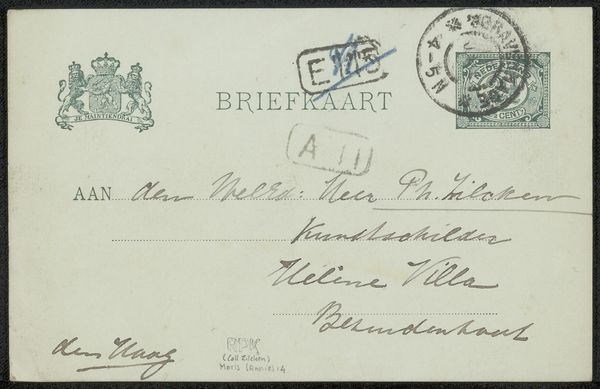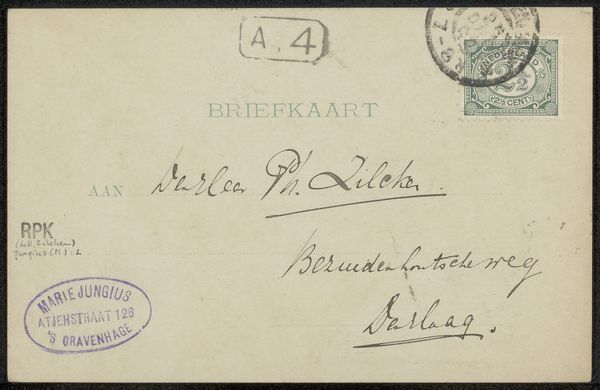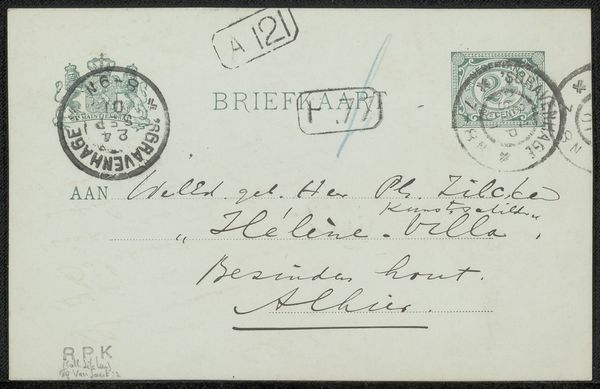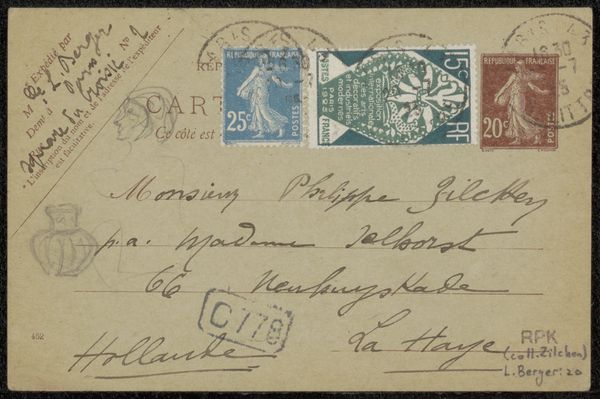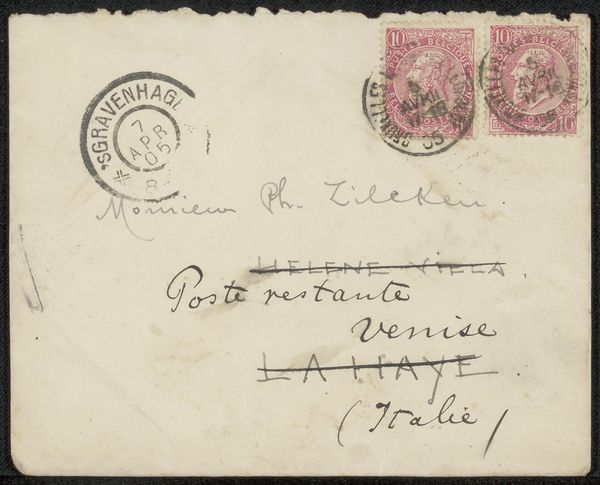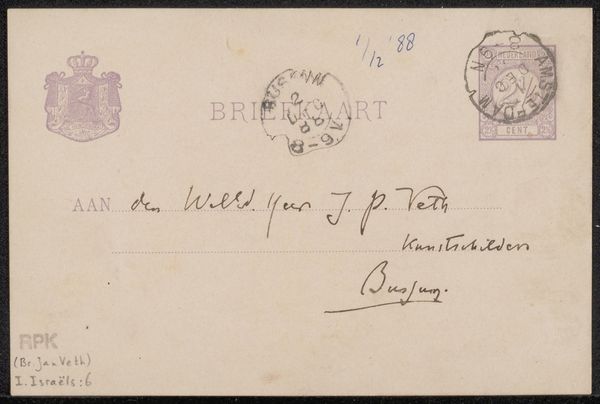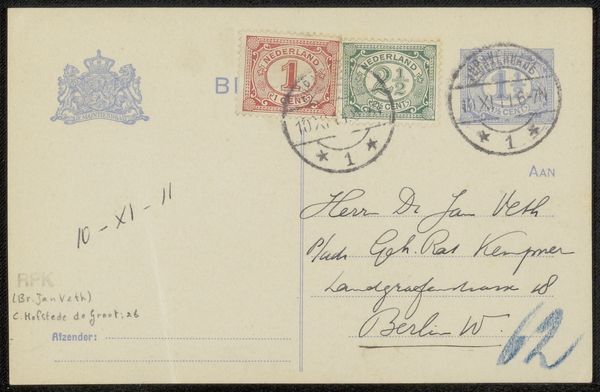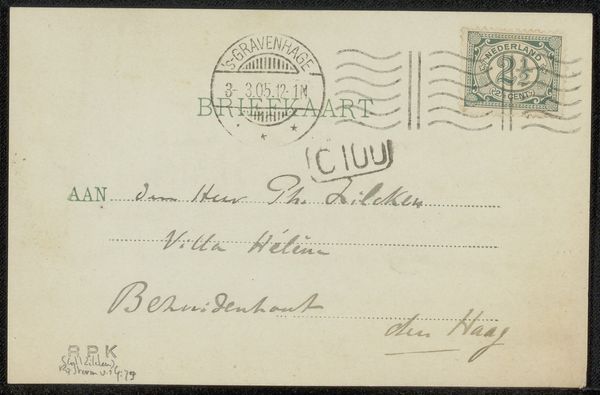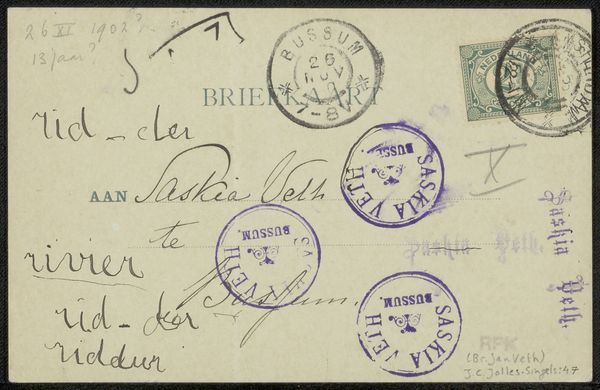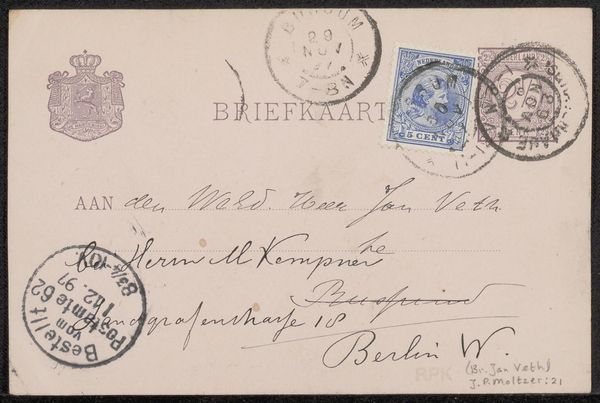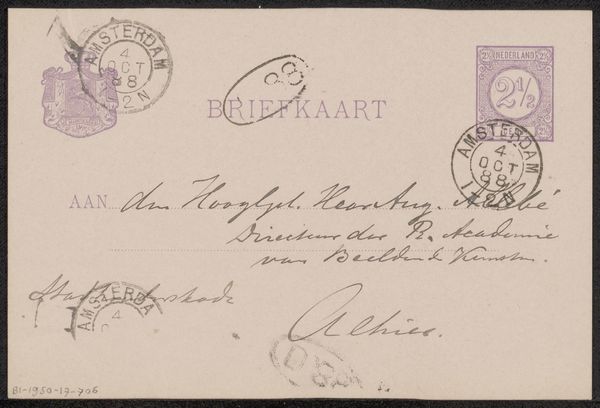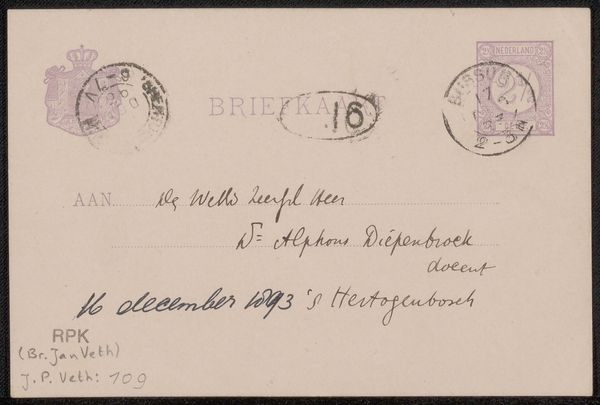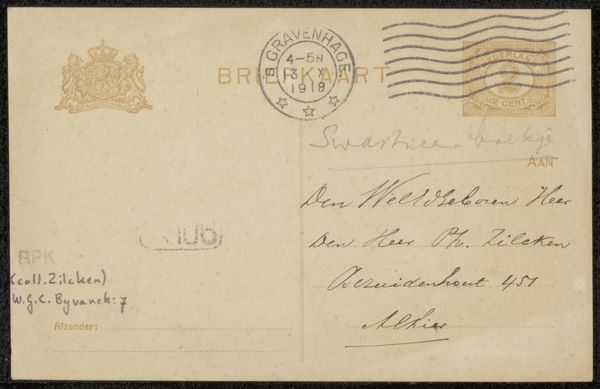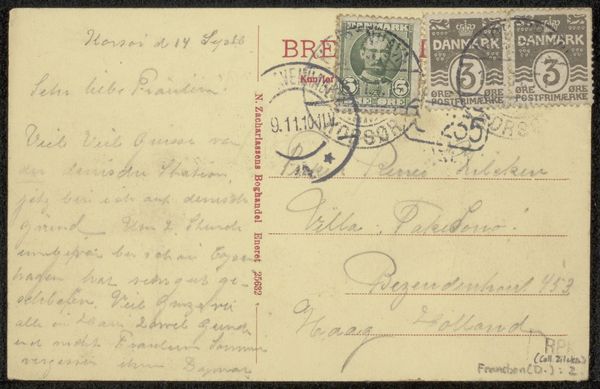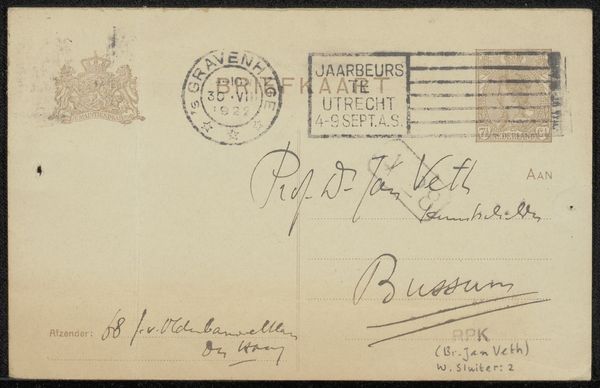
drawing, paper, ink, pen
#
drawing
#
hand-lettering
#
old engraving style
#
hand drawn type
#
hand lettering
#
paper
#
personal sketchbook
#
ink
#
hand-drawn typeface
#
pen-ink sketch
#
pen work
#
sketchbook drawing
#
pen
#
handwritten font
#
calligraphy
Copyright: Rijks Museum: Open Domain
Editor: This is "Briefkaart aan Philip Zilcken," a postcard, possibly created between 1903 and 1920. It appears to be ink on paper, featuring beautiful calligraphy. It has an antique, personal feel. What historical stories do you think this simple postcard is communicating? Curator: That’s a great question. Beyond its surface, this postcard acts as a time capsule. Consider the geopolitical context: "Great Britain & Ireland" printed alongside "Carte Postale"—it highlights the colonial power structures and the global reach of postal systems during that era. Who had access to such systems, and who was excluded? Editor: Interesting, I hadn’t thought of it that way. Curator: Look closer at the address: "Monsieur Philippe Zilcken." Addressing someone as "Monsieur" indicates a level of respect, hinting at social class. We can then ask: Who was Philip Zilcken? Was he part of the art world, a collector, or something else entirely? This small object becomes a starting point for investigating social networks and cultural exchanges of the time. Also, the very act of sending a handwritten note reflects a slower, more intimate form of communication, before mass digital communication. It speaks to social relationships in a different historical era. Editor: So, even a seemingly simple piece like this opens up questions of class, colonialism, and communication. I appreciate you bringing those historical layers to my attention. It shows how everyday objects can reflect broad social realities. Curator: Exactly! By looking at the art of the past through a critical lens we are better equipped to see, understand and address present-day challenges. What has been reinforced through such exchanges?
Comments
No comments
Be the first to comment and join the conversation on the ultimate creative platform.
